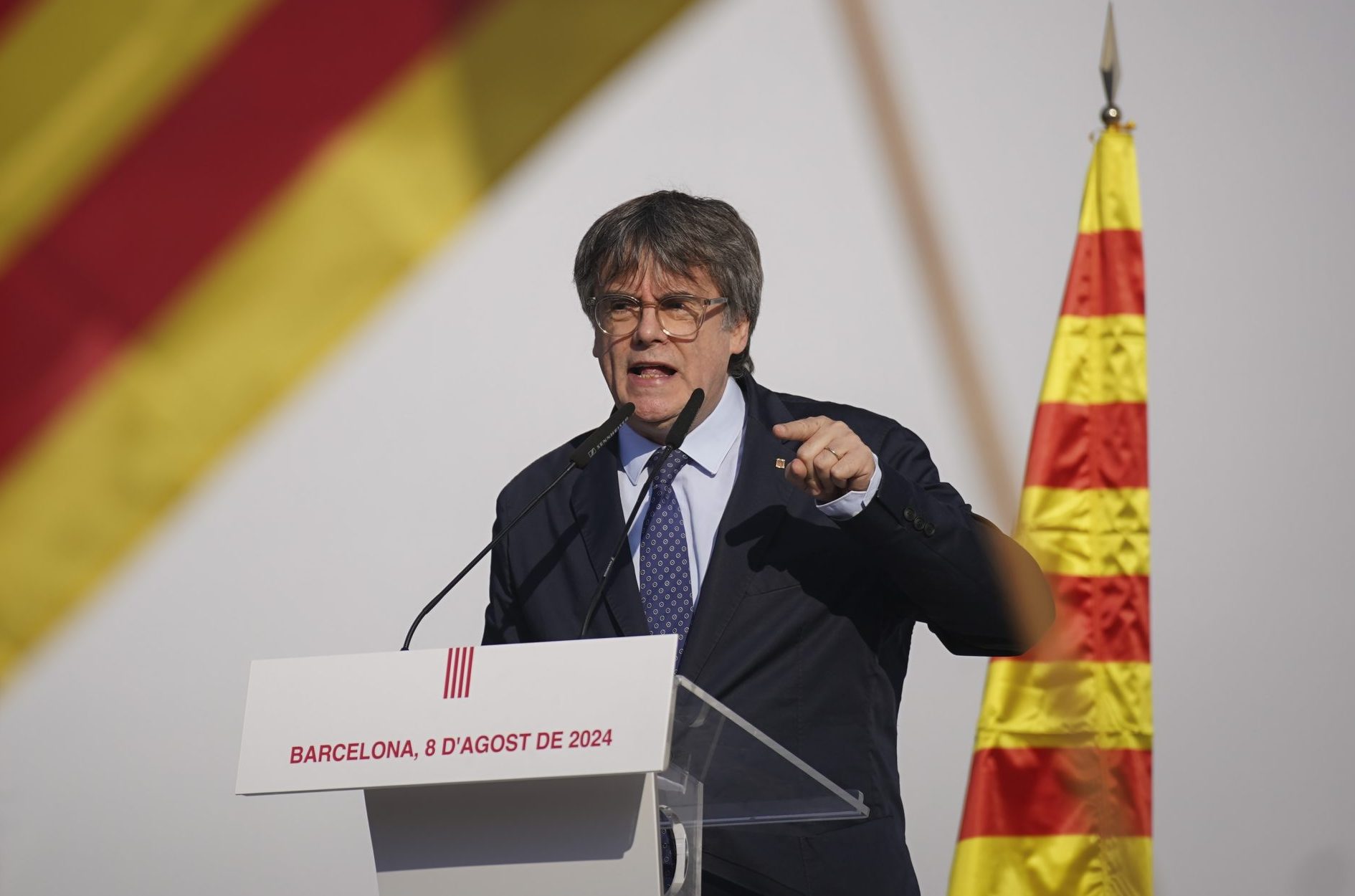Catalan independence leader Carles Puigdemont made a dramatic return to Barcelona, Spain, nearly seven years after fleeing the country following a failed bid for Catalonia’s independence. Puigdemont, who had been living in exile with his exact whereabouts undisclosed, appeared in the city to deliver a speech in front of a large crowd of supporters.
Despite an outstanding arrest warrant, local police made no immediate attempt to detain him. However, following his speech, Puigdemont made a quick and secretive escape with the alleged assistance of local police officers, prompting a manhunt across Barcelona.
Puigdemont’s unexpected appearance and swift getaway shocked many, especially given the circumstances of his return. After delivering his speech, he disappeared into a nearby tent and escaped in a waiting car, allegedly provided by a local police officer.
The Catalan police force, known as Mossos d’Esquadra, subsequently arrested two officers suspected of aiding in his escape. Despite extensive vehicle checks across Barcelona and on routes leading to France, Puigdemont managed to evade capture, and the search was called off a few hours later.

Carles Puigdemont
The return of Puigdemont to Spain occurred on the same day that Catalonia’s parliament proclaimed a new president, Salvador Illa, marking the first pro-independence government in the region in 14 years. Illa, who leads the Catalan Socialist Party (PSC), had just secured enough support to form a government, largely due to a deal brokered with the left-wing Esquerra Republicana (ERC) party.
In his speech to the Catalan parliament, Illa called for reconciliation and respect for an amnesty bill that could potentially clear Puigdemont of charges related to the 2017 independence referendum.
Puigdemont’s brief return and subsequent evasion reignited tensions surrounding Catalonia’s independence movement. His defiant speech accused Spanish authorities of persecuting Catalans for their desire for self-determination, and his escape underscored the ongoing conflict between the Catalan separatist movement and Spain’s central government.
The amnesty bill, which could absolve Puigdemont and others involved in the 2017 referendum of wrongdoing, remains a contentious issue, with Spain’s Supreme Court challenging its provisions.
The situation has caused significant political fallout, with Spain’s opposition leader Alberto Núñez Feijóo condemning Puigdemont’s return as a humiliation for Spain. The episode is likely to further polarize opinions on Catalonia’s future, complicating efforts at reconciliation and political stability in the region.
Puigdemont, a symbol of Catalan independence, continues to influence the political landscape, as his actions and the government’s response to them reverberate through Spain’s complex relationship with its autonomous regions.























